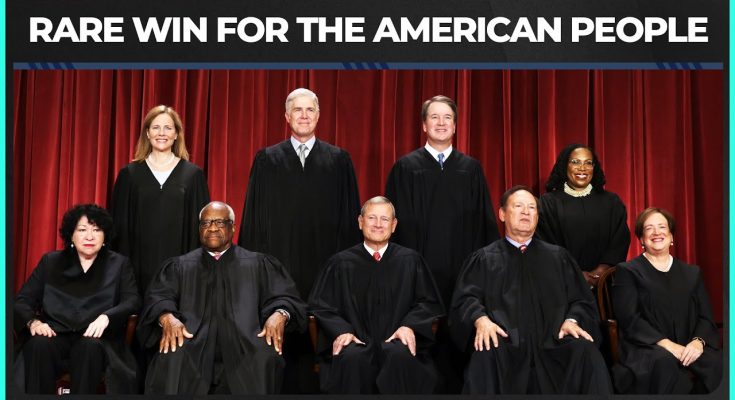In a landmark decision, the Supreme Court has issued a ruling that bolsters protections for the free press, reinforcing the fundamental role of journalism in American democracy. The ruling, which has been widely celebrated by media advocates and First Amendment defenders, serves as a crucial check against government overreach and efforts to silence critical reporting. The Young Turks hosts Cenk Uygur and Ana Kasparian weighed in on the significance of the decision, discussing its implications for both mainstream and independent journalism.
The Case at the Center of the Ruling
The Supreme Court’s decision stemmed from a case in which government officials attempted to impose legal consequences on journalists for publishing leaked or classified information. The case raised pressing questions about press freedom, government transparency, and the rights of journalists to report on matters of public interest.
At the heart of the issue was whether the government could punish journalists for publishing information obtained through whistleblowers or unauthorized leaks. Supporters of press freedom argued that penalizing reporters for simply doing their jobs would create a chilling effect, discouraging investigative journalism and limiting the public’s access to vital information. Opponents, however, claimed that national security concerns justified restricting certain types of reporting.
The Supreme Court’s Ruling and Its Impact
In a decision that reaffirmed the principles of the First Amendment, the Supreme Court ruled in favor of the press, stating that journalists cannot be prosecuted for publishing truthful information in the public interest. The ruling emphasized that government accountability is a cornerstone of democracy and that the press must be free to report without fear of legal retaliation.
This decision is a significant victory for journalists, particularly those engaged in investigative reporting on government actions, corporate misconduct, and social injustices. It ensures that reporters can continue to expose corruption and wrongdoing without facing undue legal threats from those in power.
The Young Turks’ Analysis
Cenk Uygur and Ana Kasparian welcomed the ruling, highlighting its importance in an era where press freedoms are increasingly under attack. Uygur argued that the decision sends a strong message to politicians and government officials who have attempted to intimidate or silence journalists through legal means. He pointed out that without robust protections, many of the biggest scandals in American history—such as Watergate or the Pentagon Papers—might never have been exposed.
Kasparian added that the ruling is particularly crucial given the rise of independent media, which often faces legal threats for challenging powerful interests. She noted that corporate media outlets sometimes have the financial resources to fight legal battles, but smaller independent journalists and outlets could be easily silenced without strong legal protections.
Reactions and Future Implications
The ruling has been praised by civil liberties organizations, press advocacy groups, and journalists nationwide. However, some government officials and security agencies have expressed concerns that it could encourage the publication of sensitive information.
Going forward, this decision sets a strong precedent for future cases involving press freedom. It reinforces that journalism is not a crime and that the government cannot use legal tactics to suppress truth-telling. In a time when misinformation and political polarization are rampant, ensuring a free and fearless press is more vital than ever.

